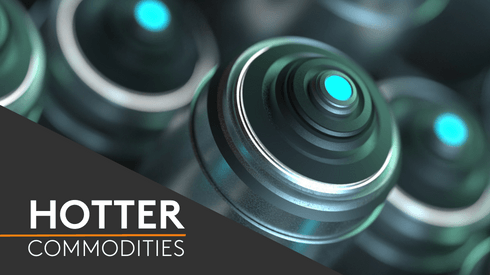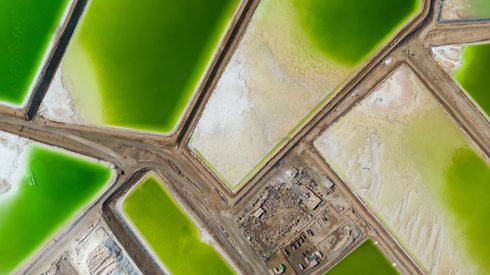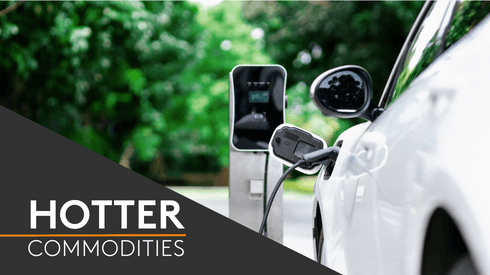Asian buyers of black mass – the term used for lithium-ion batteries sent for recycling after shredding, sorting and some processing – have largely stayed out of the market in recent weeks due to continued drops in battery raw materials prices.
But the need to replenish stock levels, together with lower prices available in the market, spurred greater black mass purchasing in Asia, market sources said.
“Some processors want more black mass to keep their stocks at three to six months’ worth [of supply],” a South Korean consumer source said, adding that he had heard that a major buyer in the country was in the market for material this week.
A representative of a second major Korean buyer believed that the market level was unchanged on Wednesday, with the most recent offer heard from Japan at 75% CIF for nickel and cobalt, including the value of lithium. The buyer was unwilling to pay more than 68-69% CIF, however.
Despite the recent uptick in buying, demand was still lower than it was earlier in the year, sources said.
“Demand has tailed off for black mass. Scrap [prices] haven’t changed too much, so producers are reluctant to do anything [to reduce black mass prices further],” a major trader source said.
“Now demand is quite weak, there are a lot of traders in the market,” and these were taking positions at the current lower prices, according to an Asian producer source.
Because traders were dominating the market at the moment, the prices paid for black mass were going downward, because traders require a margin around 5% in deals. End-users, meanwhile, can bid higher prices because they do not have to take account of traders’ margins, he added.
Material produced in the US and Europe was also typically cheaper than material from Asian origins such as Japan, because shipment times are longer and can take as much as two months, according to a Southeast Asian consumer source. He added that his firm could not pay more than the current market levels because declining battery raw materials prices were damaging his margins.
Deals heard
Containers full of nickel-cobalt-manganese (NCM) black mass originating from Asia were heard sold around 75% CIF South Korea for nickel and cobalt including lithium this week. Offers for similar material were heard at 75-80% CIF from origins such as the US.
Bids were heard at 60-69% CIF South Korea this week for nickel and cobalt including lithium, depending on the buyer.
In the Southeast Asia market, around 500 tonnes of US-origin NCM black mass with 4.0-4.5% lithium content was heard sold at 72% CIF for nickel and cobalt, including the value of lithium.
Since August 16, Fastmarkets has launched a CIF Korea price assessment for a lithium payable, meaning that the value of lithium is no longer included in the assessments for nickel and cobalt.
With lithium demand continuing to be low and its pricing weak, market sources said on Wednesday that acceptable lithium payables would be no higher than 4-5% CIF Korea.
Given the prevailing deal level, as well as the levels of bids and offers in the market, industry sources said that the payables for nickel and cobalt, excluding lithium, were 68-70% CIF Korea for NCM black mass on Wednesday.
Fastmarkets’ price assessments for black mass, NCM/NCA payable indicator, nickel, cif South Korea, % payable LME nickel cash official price, and for black mass, NCM/NCA, payable indicator, cobalt, cif South Korea, % payable Fastmarkets’ standard-grade cobalt price (low-end), were both 68-70% on September 6. These were unchanged week on week but were both down by 4.83% from 70-75% two weeks earlier.
The weekly price assessment for black mass, NCM/NCA, payable indicator, lithium, cif South Korea, % payable Fastmarkets’ lithium carbonate 99.5% Li2CO3 min, battery grade, spot prices, cif China, Japan & Korea, was 4-5% on Wednesday, also unchanged week on week.
In the lithium cobalt oxide (LCO) black mass sector, market sources heard deals to the South Korean market at 65-78% CIF this week for cobalt, including the value of lithium, depending on the seller.
Offers for LCO black mass were also heard around 70% CIF Korea, while some bids were heard at 60-65% CIF.
In the European market, LCO black mass was heard offered on a 55-60% delivered basis, for cobalt; no value was given for lithium.
Deals were also heard for ultra-high-grade material over the past few weeks.
A deal for black powder with high nickel and lithium contents was heard closed in late August in the South Korean domestic market at payables of 70% delivered for nickel and cobalt, along with a 20% lithium payable.
Black powder with high lithium content was also heard sold to the South Korea market last week at 85-90% CIF for nickel and cobalt, including lithium.
And there were rumors of a deal for NCM black mass with nickel content around 30% into the Southeast Asia market at 80-85% CIF.
Want more insights and forecasts for the battery recycling and black mass market?
Keep up to date with global market insights and predictions for the battery recycling market with the Fastmarkets NewGen Battery Recycling Outlook.






